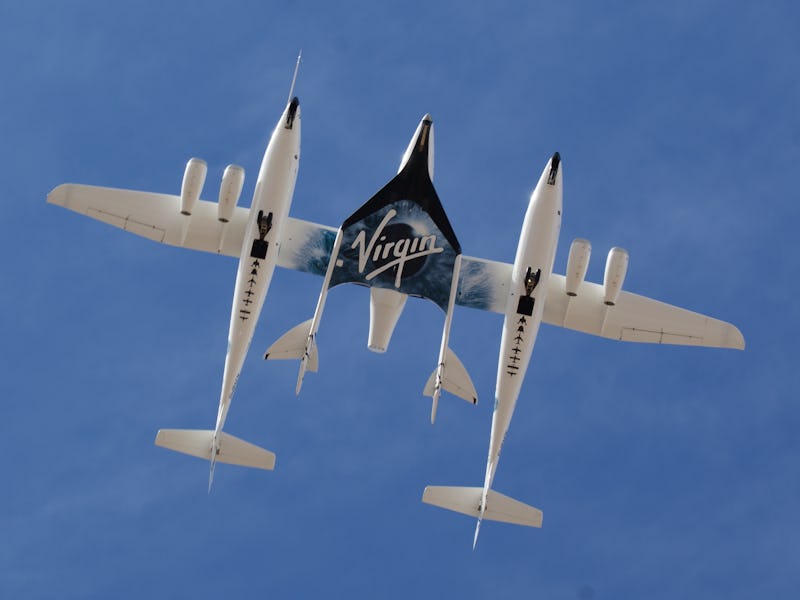One hundred years from now, Virgin Galactic will operate space hotels where tourists hang out in luxury orbiting pods and take side trips around the moon. That’s Richard Branson’s dream, anyway.
“I would love to have really sexy Virgin hotels in space, where people can go and stay in pods, and head off in little spaceships around the moon when they wake up in the morning, and they come back to their pod in the evening,” Branson said in an interview with Mashable UK on Monday. He also spoke to his ambitions for space recreation for the fabulously rich, and wifi for all.
And though Branson, the company’s chairman, would love to take people to Mars one day, he doesn’t seem keen on starting a space colonization arms race with SpaceX’s Elon Musk. Virgin’s primary targets are more earthly.
“Obviously, Virgin Galactic would love to go take people to Mars one day; Elon would love to take people to Mars one day,” says Branson. “But in the meantime, there’s an awful lot of work that needs to be done to help people back here on Earth. For instance, putting this big array of satellites around the Earth to try to connect the five billion people who do not have internet or wifi access.”
And although Branson clearly would like to see space tourism become something everyone can afford, it is sure to remain a playground for the absurdly rich for the foreseeable future. Virgin’s planned suborbital flights currently carry a price tag of $250,000 for a 2.5-hour trip that includes six minutes of weightlessness.
That price is unlikely to come down, because physics. It just takes an incredible amount of energy to escape Earth’s gravity, and until we perfect nuclear fusion or find some other limitless source of power, getting to space will be an extraordinarily expensive proposition.
Even if economies of scale could bring the ticket price down to $50,000, it’s questionable how many humans would have the means and desire to sign up. Branson contends that in any given audience, 90 percent of people present will say that would like to go to space. How many of those, if you gave them $50,000 to spend freely, would choose a brief glimpse of the Blue Marble over all else? Of those, who would independently find a way to source the funds to make the trip?
An expensive view.
It’s worth noting that even the dream of $250,000 space flights is still a ways away. Virgin Galactic suffered a major setback in 2014 with the fatal crash of the first SpaceShipTwo craft, the VSS Enterprise. That hasn’t dampened Branson’s suborbital ambitions, though — the spacecraft’s successor, the VSS Unity, began test flights last month. The FAA has also approved Virgin Galactic to operate commercially.
